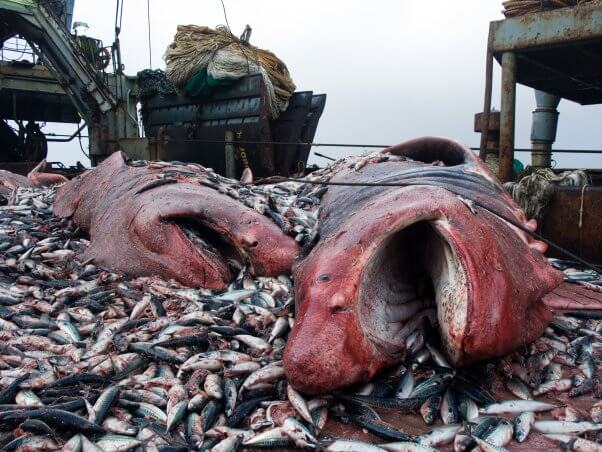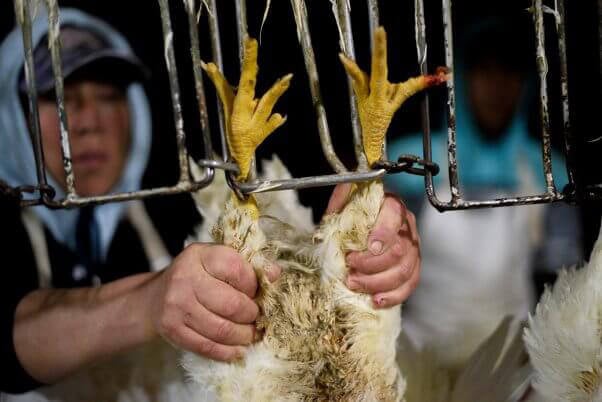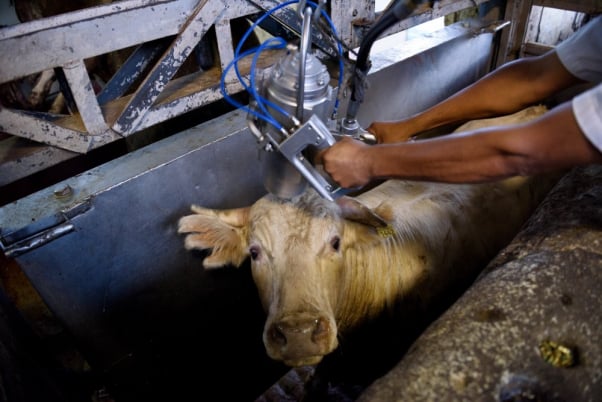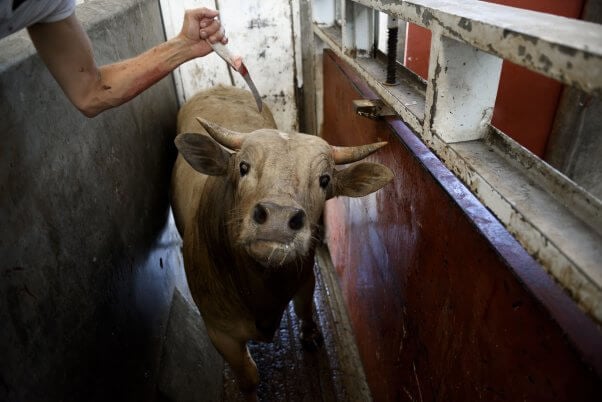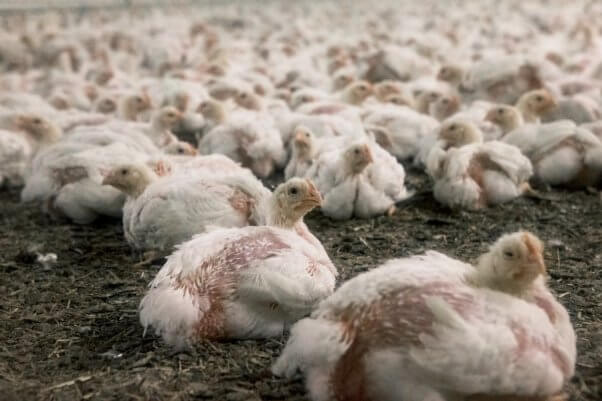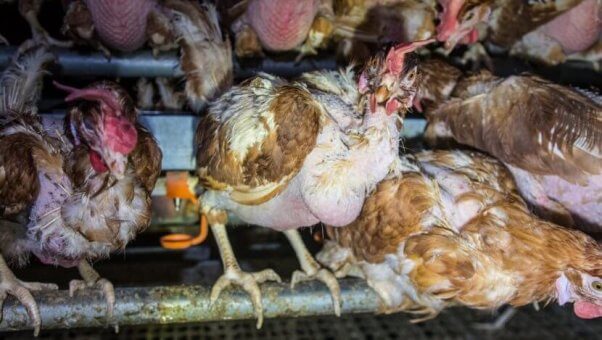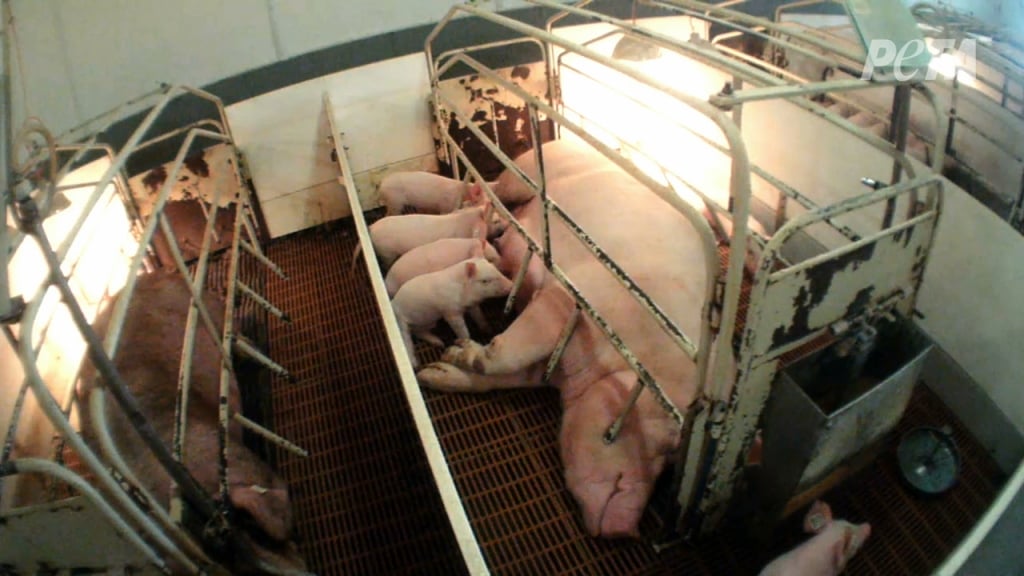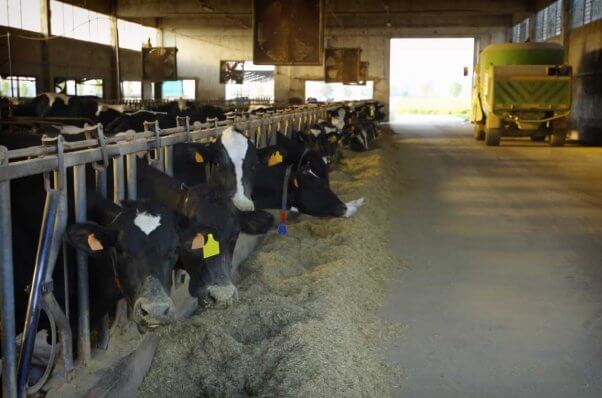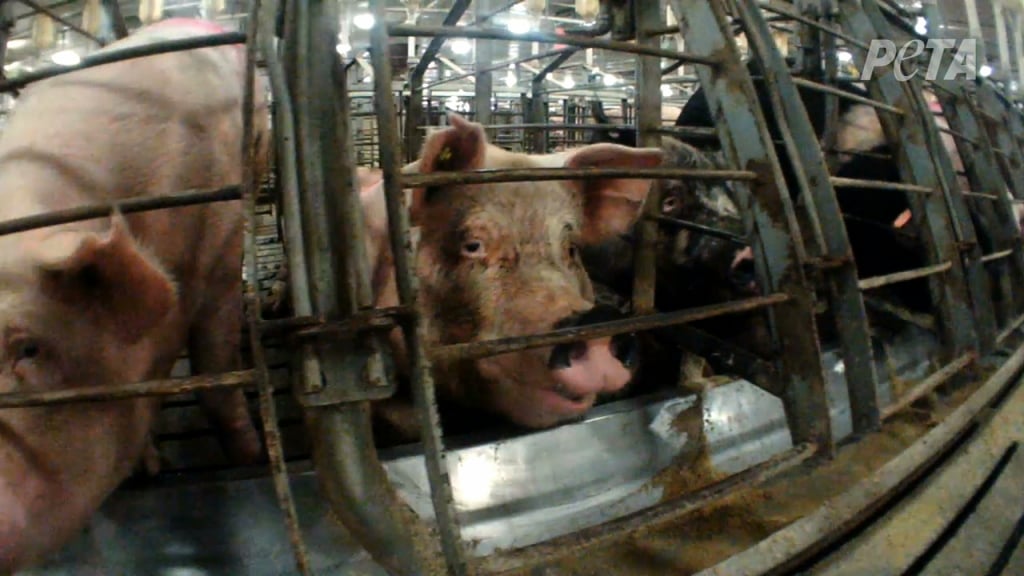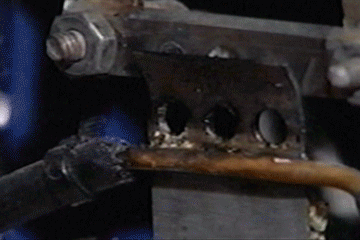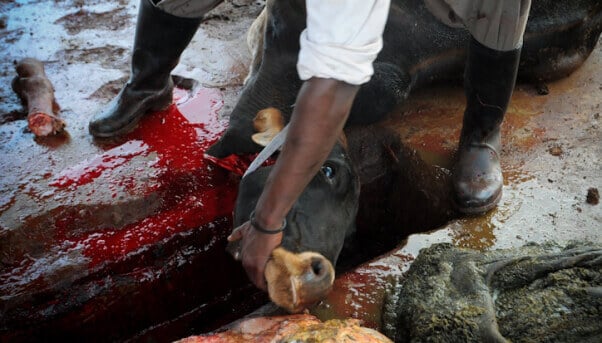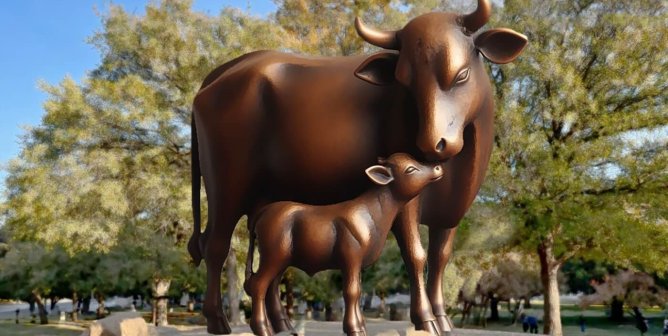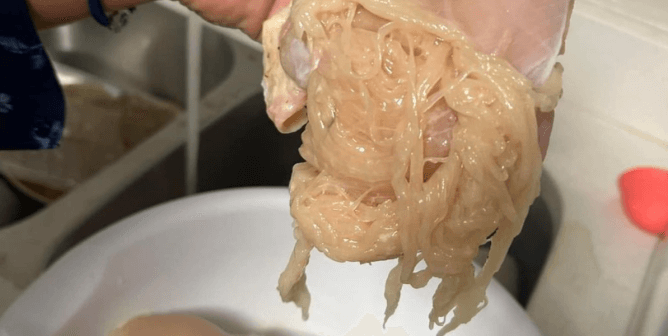Understanding These Meat-Industry Euphemisms Could Mean Life Not Death
Do you eat meat, eggs, or dairy “products”? If you do, you’re being played. The animal agriculture industry dresses up and dumbs down many words and phrases, but at the end of the day euphemisms do not change reality: a “processing plant” is still a slaughterhouse. Keep reading to ensure that you know exactly where your food comes from:
1. ‘Bycatch’
Seaspiracy, the latest Netflix documentary taking the country by storm, is cluing folks in to an important reality: If you wouldn’t eat shark fins or dolphins, you shouldn’t eat tuna or shrimp. The reason why? One word euphemism—“bycatch,” i.e., the dolphins, sharks, sea turtles, whales, octopuses, rays, seals, birds, and other “nontarget” species who are caught or become entangled in fishing nets, such as those targeting tuna or shrimp, and are then discarded. This speciesist term implies that it’s OK for animals to be killed for humans to eat while others are discarded back into the ocean (probably to die as well), even though all animals deserve to live peacefully in their natural homes.
Watch Seaspiracy to learn more eye-opening truths about the global fishing industry.
2. ‘Birds per Minute’
Beats per minute? Sure. Revolutions per minute? Why not. But birds per minute? Heck no! If an industry needs a term to refer to the speed at which terrified chickens can be slaughtered, you know something’s horribly wrong. But that’s typical chicken-industry nonsense right there—bully slaughterhouse workers into rushing through killing birds as fast as is possible, making conditions even more dangerous for the employees who are treated like disposable equipment as well as for the animals, who don’t want to die.
In 2017, the National Chicken Council asked the U.S. Department of Agriculture (USDA) to waive its slaughter line speed limits so that slaughterhouse workers can rush chickens through even faster. Three years later, as the COVID-19 pandemic rages on, the union representing workers at chicken slaughterhouses across six states are suing the USDA, claiming that the agency’s approval of slaughtering 175 birds per minute goes against the 2014 cap of 140 birds per minute. The lawsuit also asserts that the faster kill speed makes it nearly impossible for workers to distance themselves properly from one another, increasing the likelihood of the spread of the novel coronavirus—a reasonable point, considering that as of July 30, 38,000 slaughterhouse and meatpacking workers in the U.S. have tested positive for COVID-19.
3. ‘Depopulation’
Just like “harvest” (see below), the meat industry discusses “depopulation methods” as if it were talking about alternate routes in MapQuest. But since “depopulation methods” include gunshot, captive-bolt guns (like the one being used to kill the cow in the image below), electrocution, and manual blunt-force trauma, why not just call a spade a spade and say “killing”? Because the animal-agriculture industry wants to disguise the fact that it revolves around the mass killing of animals—that’s why. But now more than ever—amid a growing pandemic that began with a zoonotic disease and continues with federal government assistance to slaughterhouses with depopulating murdering animals so that they can stay in business—it’s crucial that we not be duped by these shady euphemisms. For millions of animals, our awareness is a matter of life or death.
4. ‘Artificial Insemination’
In the medical world according to humans, artificial insemination is a fertility treatment used by consenting, hopeful parents-to-be. In the animal agriculture industry, the term is used to describe the process of forcibly and involuntarily violating an animal sexually—in other words, rape. Female cows, pigs, and turkeys are routinely raped on farms when their bodies are violated through “artificial insemination.”
5. ‘Beef Cow’
Animals used and killed for food aren’t considered persons in the farming industry—even though they all have unique personalities. Instead, they are considered “products” and are labeled as the type of meat that they’ll become once they’re slaughtered. “Beef cows” are actually living, breathing, sentient beings the industry breeds, brands, often drugs, transports, tortures, and then kills—all in an attempt to make a buck.
6. ‘Broilers’
Chickens raised for their flesh are referred to as “broilers.” These birds—who are actually inquisitive, clever animals and as intelligent as cats and dogs—are typically raised in huge ammonia-filled, windowless sheds in which artificial lighting is manipulated to make them eat as often as possible. Because chickens aren’t protected by federal “humane” slaughter laws, many are still conscious when their throats are cut, and some are scalded to death in feather-removal tanks after missing the throat-cutting blade.
7. ‘Cage-Free’
When people hear or read about “cage-free” eggs, they probably imagine happy hens roaming on sprawling green acres—a picture similar to those depicted on many “cage-free” egg cartons. Unfortunately, birds used on these farms spend their entire lives confined to cramped sheds. They aren’t scratching and pecking in grass and plowed fields—they’re being held in a prison camp. Seriously—do the chickens in the picture below look “free” to you?
8. ‘Calf Grafting’
Imagine your baby dying and someone skinning him or her and then tying the skin to a live baby using twine, all in an attempt to “trick” you into nursing the live baby. This horror movie–worthy scenario actually happens in the ranching world—it’s known as “calf grafting.” The process is used to encourage cows to “adopt” and raise young calves who aren’t their own. Click here—if you dare—to watch a video explaining the practice.
9. ‘Farrowing Crates’
Pigs used for breeding are “artificially inseminated” (see above) and imprisoned for their entire pregnancies in “gestation crates” (see below). After giving birth, they’re moved to “farrowing crates,” which are cages so small that the animals can’t even turn around or lie down comfortably in them. They include a tiny grated area to accommodate nursing piglets—before the babies are taken away from their mothers and eventually sent to slaughter.
10. ‘Free-Range’
Like “cage-free” eggs, items labeled “free-range” embody false advertising at its most deceitful. A PETA eyewitness exposé revealed that eggs from Nellie’s Free Range Eggs were anything but. One shed was packed with 20,000 hens, which means that each bird had only about 1.2 square feet of floor space. These “happy hens,” as Nellie’s referred to them, were missing the tips of their beaks—the result of another standard industry practice. Many were also missing feathers. See for yourself:
11. ‘Fillers’
No, we’re not talking about the stuff that helps fill in facial wrinkles. Before they’re slaughtered, cattle raised for beef are fed an unnatural diet of high-bulk grains and other “fillers.” These can include expired dog and cat food, poultry feces, blood, feathers, and leftover restaurant food, among other things.
12. ‘Forced Molting’
“Forced” anything sounds terrible, but “forced molting” is a special type of awfulness—it’s how farmers induce greater egg production. When hens’ bodies become so weak that they stop producing eggs, farmers starve them using a technique called “feed-withdrawal forced molting” in order to shock them into another laying cycle (to increase their output, thus increasing profits). This practice is so cruel that some hens die during it, and many of those who survive lose all their feathers and much of their bodyweight.
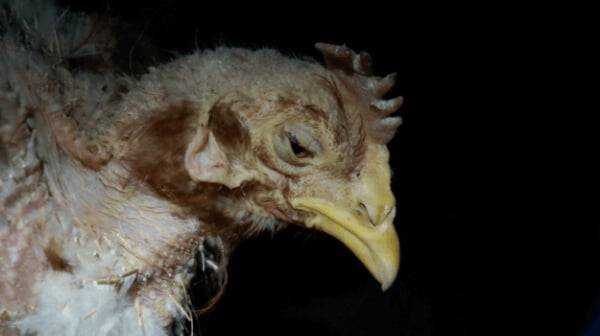
13. ‘Gestation Crate’
Similar to “farrowing crates,” “gestation crates” are really just 2.5-feet-wide cages that female pigs are imprisoned in during their entire pregnancies. When they’re confined to these tight metal cages, they’re unable to take even one step in any direction or turn around.
14. ‘Harvest’
For many, the word “harvest” conjures up happy images of bountiful fruits and vegetables. In the animal agriculture industry, it’s used synonymously with “slaughter,” a word that brings to mind scenes of bloody, horrifying murder. Seriously, does the picture below say “harvest” to you?
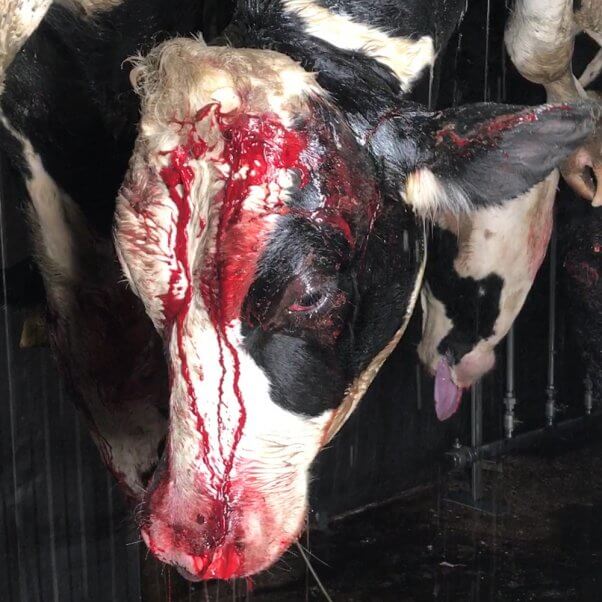
15. ‘Organic’
Since they first appeared, “organic” labels have led customers to believe that certain animal-derived foods are “better” or more “humane” than others. But animals on typical organic farms are often confined, are subjected to immense cruelty, and endure painful deaths. Thanks to one behind-the-scenes exposé after another, we’ve known all along that there’s no such thing as “humane” meat—despite what the U.S. Department of Agriculture wants you to believe. And don’t forget, animals raised on “organic” farms can end up at the same slaughterhouses as those raised on factory farms.
16. ‘Poultry Service Processor’
A “poultry service processor” is actually a debeaking machine. Click here to see a photo of one. If you think it looks like a torture device, that’s because it is one, and it causes birds used in the egg industry to endure immense pain. It clamps baby chicks by the head, stabs them in the neck with a vaccination, and then projects an infrared light that causes the tips of their sensitive beaks to die and crumble off.
17. ‘Processing Plant’
Once again, the animal agriculture industry attempts to sidestep the word “slaughterhouse” by using “processing plant” instead. Pitiful.
18. ‘Stanchions’ and ‘Feed Racks’
If your food were a byproduct of rape, would you still want to eat it? Didn’t think so. Did you know that “stanchions”—also called “feed racks”—are really just rape racks? “Stanchions” are used to keep cows still so that they can be forcibly impregnated in order to keep their milk flowing. After they’re raped repeatedly, their babies are stolen from them, usually within hours of birth.
*****
If you eat meat, eggs, or dairy “products,” the euphemisms above are associated with what you’re putting into your body. The industry that’s supplying your food is misleading you with deceitful euphemisms and deceptive labels. If you’re ready to follow a lifestyle that’s free of rape and slaughterhouses, go vegan. You can save nearly 200 animals per year just by doing so—and there’s nothing false about that.

